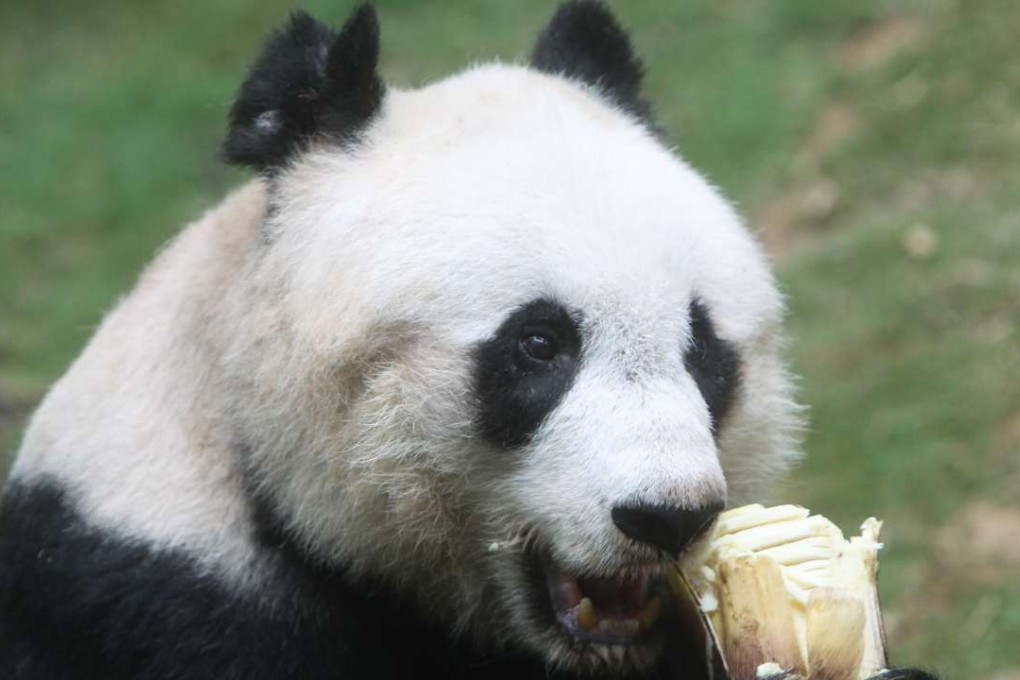World’s oldest giant panda Jia Jia put to sleep at Hong Kong’s Ocean Park
The female was losing interest in food and losing weight over past few weeks

The world’s oldest giant panda in captivity, Jia Jia, died on Sunday in its home at Ocean Park aged 38.
The condition of Jia Jia, whose name means “good” and had just turned 38 – about 114 years old in human terms – had been rapidly deteriorating in the past two weeks, with her food consumption declining sharply from more than 10kg to less than 3kg per day, while her average weight dropped from 71kg to about 67kg, a spokeswoman for the theme park said.
She had been spending less time awake and showing no interest in food or fluids for the past few days.
Her condition worsened on Sunday morning, when she was unable to walk and spent the day lying down.
Based on ethical reasons and to prevent suffering, veterinarians from the Agriculture, Fisheries and Conservation Department and Ocean Park agreed to put her to sleep.